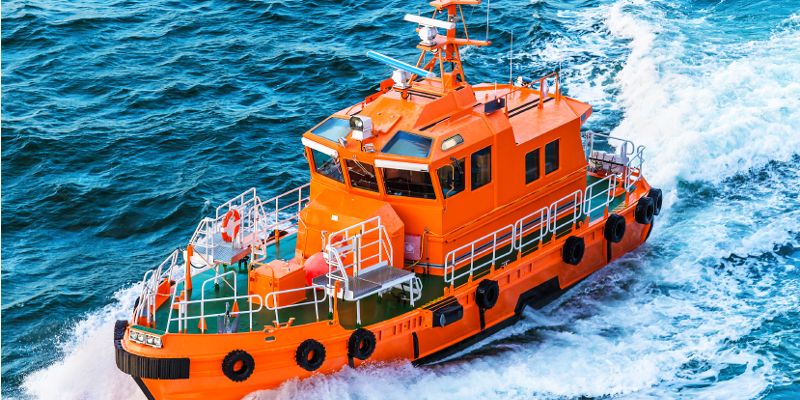
A mathematical model developed at the University of Leeds could make it possible to design safer versions of the ‘fast ships’ used in many vital offshore operations.
Travelling at up to 30 knots, fast ships are used for search and rescue, anti-piracy and for transporting wind farm, oil and gas personnel. These ships are especially vulnerable to waves that amplify suddenly due to local weather and sea conditions – so-called ‘rogue’ or ‘freak’ waves – with about 100 ships lost or damaged each year worldwide, incurring around 2,500 casualties.
For example, extreme funnelling effects may turn waves a few metres high into dangerous waves tens of metres tall that can destabilise ships, resulting in damage, causing injuries and threatening lives.
The new model produces unprecedentedly accurate animations and simulations that can show exactly how sea waves can affect fast ships. It highlights the importance of having accurate predictions of the pressure forces that these craft are subjected to, and could aid the design of fast ships better able to withstand the effects of rough seas.
Project lead Professor Onno Bokhove, from the University’s School of Mathematics, said: “Describing mathematically the complex behaviour of waves and their interaction with fast ships and then incorporating all of this into a robust computer model has been very challenging. We’re delighted to have provided further proof of how advanced mathematics can have real-world applications that help save money and safeguard lives.”
The researchers can already simulate the complex interactions of sea waves that can lead to a freak wave, but adding the motion of ships into the equation complicates matters significantly.
Dr Anna Kalogirou, also from the University’s School of Mathematics, said: “We can simulate small amplitude waves crashing against a boat, but when the waves interact with each other and gain high amplitudes, then their impact on ships is more significant and the modelling of this physical phenomenon is complex.”
The aim is to extend the model over the next three years to fully incorporate the motion of ships into the simulation so that the tool can be used extensively by ship designers and maritime engineers.
Further information
The initial project ‘FastFEM Behaviour of Fast Ships in Waves’ began in June 2014 and received just over £147,000 in funding from the Engineering and Physical Sciences Research Council (EPSRC).
For media enquiries, please contact Sarah Reed, Press Officer at the University of Leeds, on 0113 343 4196 or email s.j.reed@leeds.ac.uk